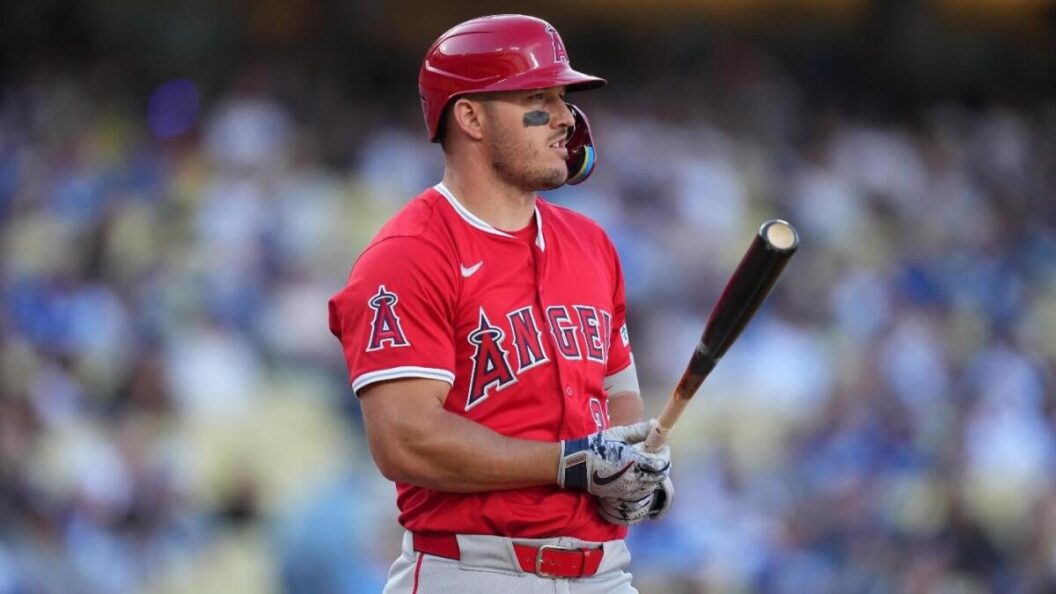Fan Interference Causes Stir During MLB Game Involving Mike Trout
During a recent game between the Los Angeles Angels and the Houston Astros, star right fielder Mike Trout found himself at the center of an unusual incident involving a fan. The event echoed memories of prior fan-player altercations, like the famous moment during the World Series when two fans disrupted a play involving Mookie Betts.
As Trout attempted to make a leaping catch on a foul ball hit by Astros catcher Yainer Diaz, a spectator reached out, grabbing Trout’s glove and the ball itself. In an unprecedented twist, the fan immediately appeared regretful and attempted to apologize following the interference. Despite any remorse, game officials took action, ejecting the fan from the stadium for the remainder of the game.
Rule Enforcement in Focus
The MLB enforces strict rules regarding fan behavior during games, particularly when it comes to player interactions. When a foul ball or home run is hit, spectators are encouraged to contest for the ball but must refrain from physical interference with players. This incident with Trout highlights the thin line between the excitement of live sports and the expectations of proper etiquette.
After the play was reviewed, Trout and the Angels were credited with the out, a standard procedural response to the interference. The event sparked discussions on social media about the boundaries of fan engagement and acceptable behavior in stadiums.
Resolution After the Game
In a heartening turn of events, Trout later connected with the fan and his son after the conclusion of the game. The interaction seemed to mend any rift caused by the incident, allowing for a positive conclusion to an otherwise controversial moment. Both parties left on amicable terms, showcasing sportsmanship that transcends the game.
Understanding the Bigger Picture
This incident underscores both the thrill of attending live sports and the challenges that come with it. As fans, the excitement of being close enough to players can lead to impulsive actions that, while often innocent, can cross the line into unacceptable territory. As Major League Baseball continues to draw large crowds, ensuring that spectators understand their role and limits remains crucial to maintaining a safe and enjoyable atmosphere for all.
Interactions between players and fans can create memorable experiences, but they must always adhere to the principles of respect for the game and its participants. Fixtures like these remind us of the importance of responsible fan behavior while also humanizing the athletes involved. Ultimately, whenever engagement occurs, it should aim to foster inclusion and positivity rather than disruption.









